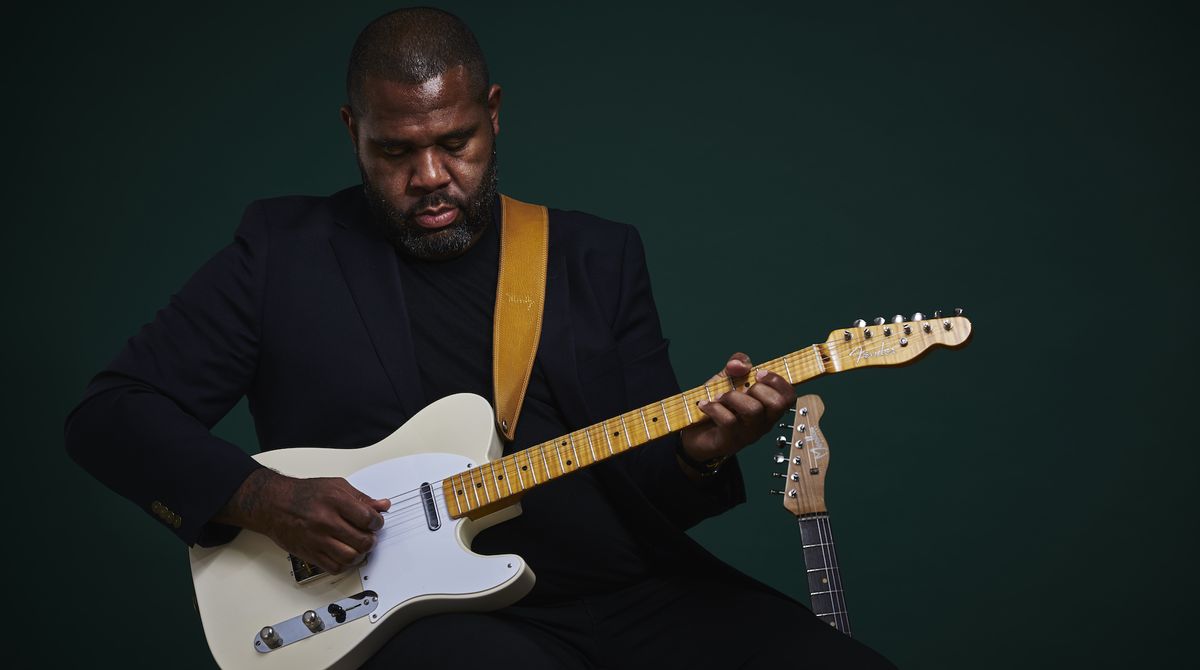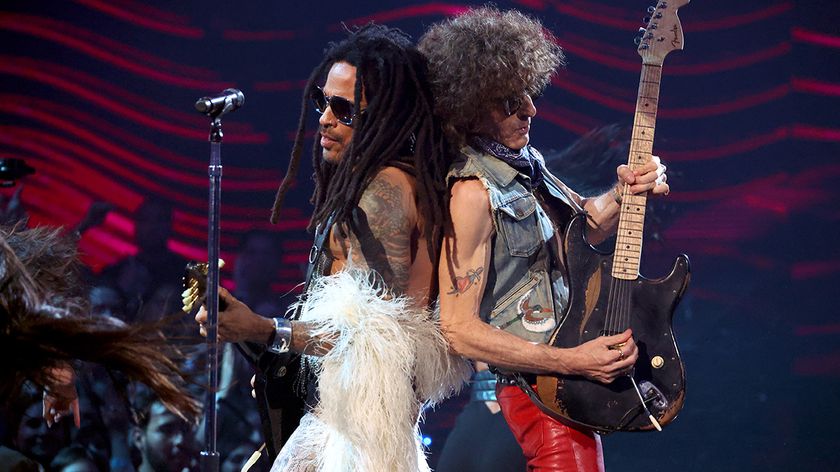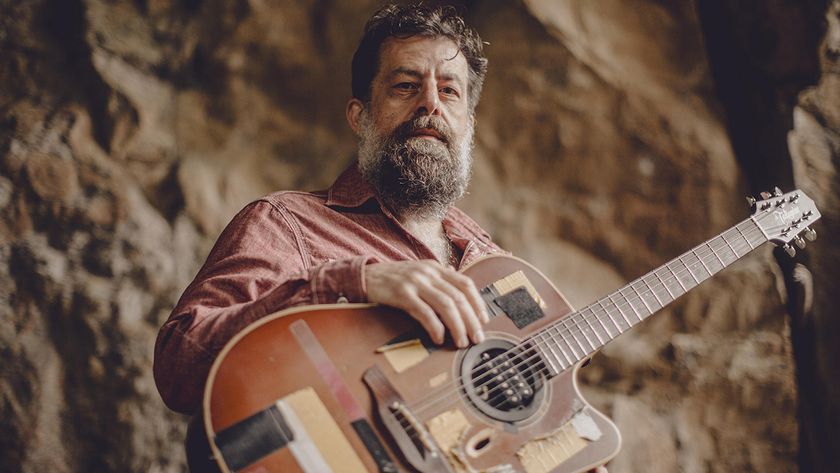Kirk Fletcher: ”Some players neglect the history. The most iconic players of all time – Hendrix, Clapton and Page – all had that foundation”
The blues ace takes us deep into the heart of his newest release, the aptly titled My Blues Pathway

Kirk Fletcher was driving back from the 2019 King Biscuit Blues Festival in Helena, Arkansas, when he experienced what he describes as “a bit of an epiphany” regarding his next studio release.
Initially it was set to be an album of original material, delving deep into the singer/guitarist’s love for funk and R&B, but early one fateful morning he realized he needed to go back to the source and pay tribute to the blues masters of old.
“That festival is near to where my family are from, close to the Mississippi,” says Fletcher of the lightbulb moment behind his sixth album, My Blues Pathway, a mixture of originals, co-writes and covers of Sonny Boy Williamson, Chris Cain, A.C. Reed and Juke Boy Bonner.
“I was driving at 6 in the morning, literally through the Delta, and I asked myself, ‘What am I doing?!’ I know it sounds cliché but it just hit me – I realized I needed to do a blues record. All the lessons I’ve learned along the way, all the mistakes, fused into everything I know about singing my own songs as well as other people’s music.”
I was driving at 6 in the morning, literally through the Delta... It just hit me – I realized I needed to do a blues record.
Inspiration also came from his “'80s heroes,” who further engrained those flat fives and 12-bar turnarounds into popular culture.
It’s evident in the slickness of new tracks like No Place to Go and Rather Fight Than Switch – which hark back to an era of blues treading new sonic ground – less raw and more refined, yet still gripping and thrilling at every turn. Much like the prodigious Joe Bonamassa, for whom Fletcher has occasionally played rhythm guitar, there’s a sweetness and authenticity to his approach that screams class.
“I looked at it in the same way as Robert Cray, Stevie Ray Vaughan or the Fabulous Thunderbirds,” Fletcher says. “All those players behind the big Eighties resurgence. They would mix their records more like pop or soul records. It was a big potpourri of influences.”
Get The Pick Newsletter
All the latest guitar news, interviews, lessons, reviews, deals and more, direct to your inbox!
The Robert Cray connection doesn’t end there; Cray’s long-serving bass player, Richard Cousins, co-wrote two of the album’s 10 tracks. In a bizarre twist of fate, the musicians – both American – discovered they were living within half an hour’s drive from each other in Switzerland, some 5,000 miles off home soil.
Every song had the Strat the whole way through, plugged into a 1965 Deluxe Reverb Blackface
Fletcher describes the collaboration as “incredible and kinda full circle” considering he’s been “in complete awe of Robert and Richard” for the majority of his musical life. Though he’s been known to play various Gibsons and Fenders, the tones recorded over the six days of sessions mainly boiled down to one guitar and one amp. Fletcher simply didn’t feel the need to use anything else. Well, if it ain’t broke…
“This was all Stratocaster,” he says. “Every song had the Strat the whole way through, plugged into a 1965 Deluxe Reverb Blackface. That said, my buddy Josh Smith had some amazing stuff when I went over to do a couple of overdubs.
“He had a 1955 Bassman, a Morgan PR12 – which is based on a Princeton, so still Fender-esque. I might have used a Vemuram/Ibanez Tube Screamer for a little grit… but it was pretty clean, to be honest. To find ‘my blues pathway,’ I had to put my own spin on it.”
And that spin, he attests, is key. When asked about the missing ingredient many of today’s aspiring players seem to lack, he says there’s usually a fundamental sense of context behind any blues great. To some extent, in order to speak the blues, you have to understand the story of the blues.
“Some players neglect the history. That doesn’t mean you have to be some musicologist who plays exactly like Robert Johnson,” he says. “But when you hear the most iconic players of all time – Hendrix, Clapton and Page – they all had that foundation. They were big music lovers and record collectors who spent millions of hours absorbing their favorite albums.”
A 13-year-old learning to play has everything available. All they need is someone to point them in the right direction
There’s always something to listen to and learn from, summarizes the former Fabulous Thunderbirds guitarist, noting how a lot of the biggest bands in the world, past and present, discovered their own voices as students of the blues, eventually going on to create something unexpected and new. This trend, believes Fletcher, is far from over.
“You might hear some crazy Howlin’ Wolf beat and get really inspired. I mean, the White Stripes… hello?! We’ve seen how bands like the Rolling Stones went far back in order to find themselves. It’s even easier now. A 13-year-old learning to play has everything available. All they need is someone to point them in the right direction, whether that’s Joe Bonamassa, Josh Smith… or even me!”
- Kirk Fletcher's My Blues Pathway is out now on Cleopatra Blues.
Amit has been writing for titles like Total Guitar, MusicRadar and Guitar World for over a decade and counts Richie Kotzen, Guthrie Govan and Jeff Beck among his primary influences as a guitar player. He's worked for magazines like Kerrang!, Metal Hammer, Classic Rock, Prog, Record Collector, Planet Rock, Rhythm and Bass Player, as well as newspapers like Metro and The Independent, interviewing everyone from Ozzy Osbourne and Lemmy to Slash and Jimmy Page, and once even traded solos with a member of Slayer on a track released internationally. As a session guitarist, he's played alongside members of Judas Priest and Uriah Heep in London ensemble Metalworks, as well as handled lead guitars for legends like Glen Matlock (Sex Pistols, The Faces) and Stu Hamm (Steve Vai, Joe Satriani, G3).

“The concept of the guitar duel at the end was just appalling”: Crossroads is an essential piece of '80s guitar lore, but not every guitar legend was a fan of the film

“Zal is really nobody’s guitar hero. Fans say he’s the most underrated player ever; many guitarists rate him amongst the best... but I’ve never heard anyone call him their ‘guitar hero’”: Billy Rankin on lessons learned from the legendary Zal Cleminson









